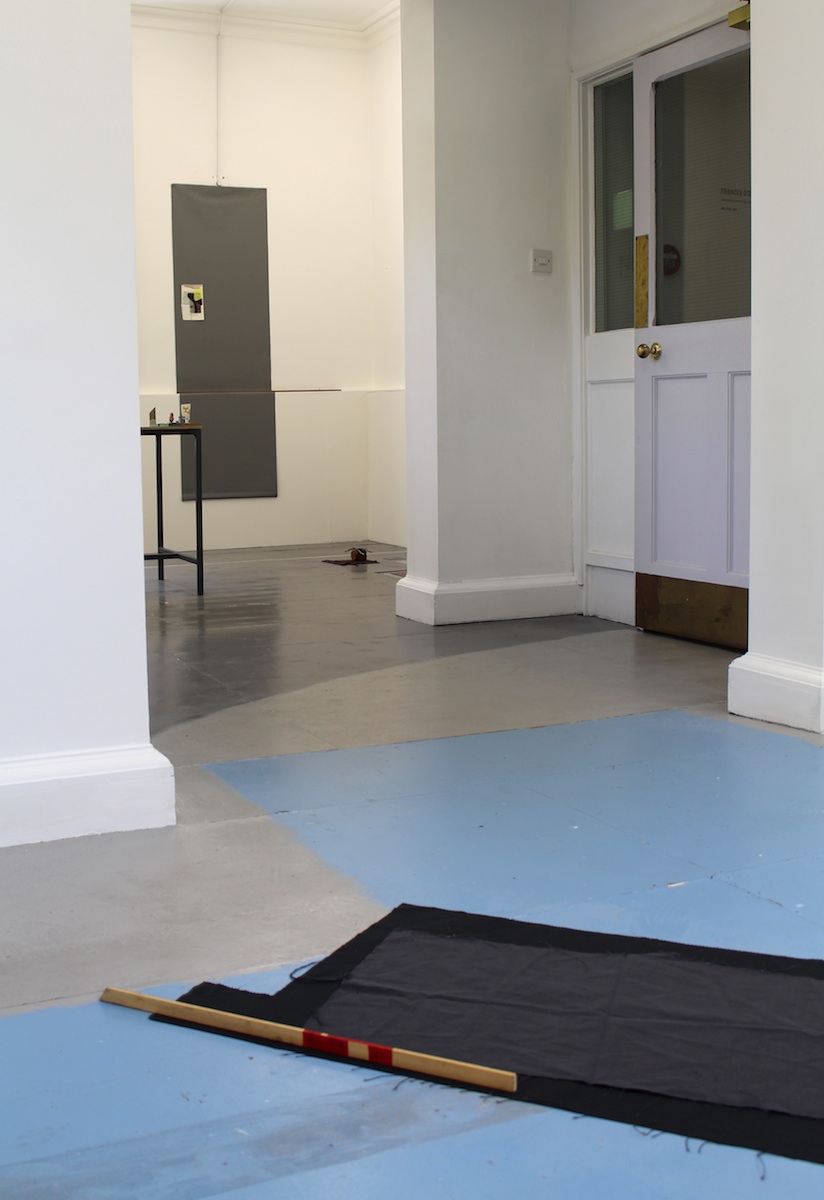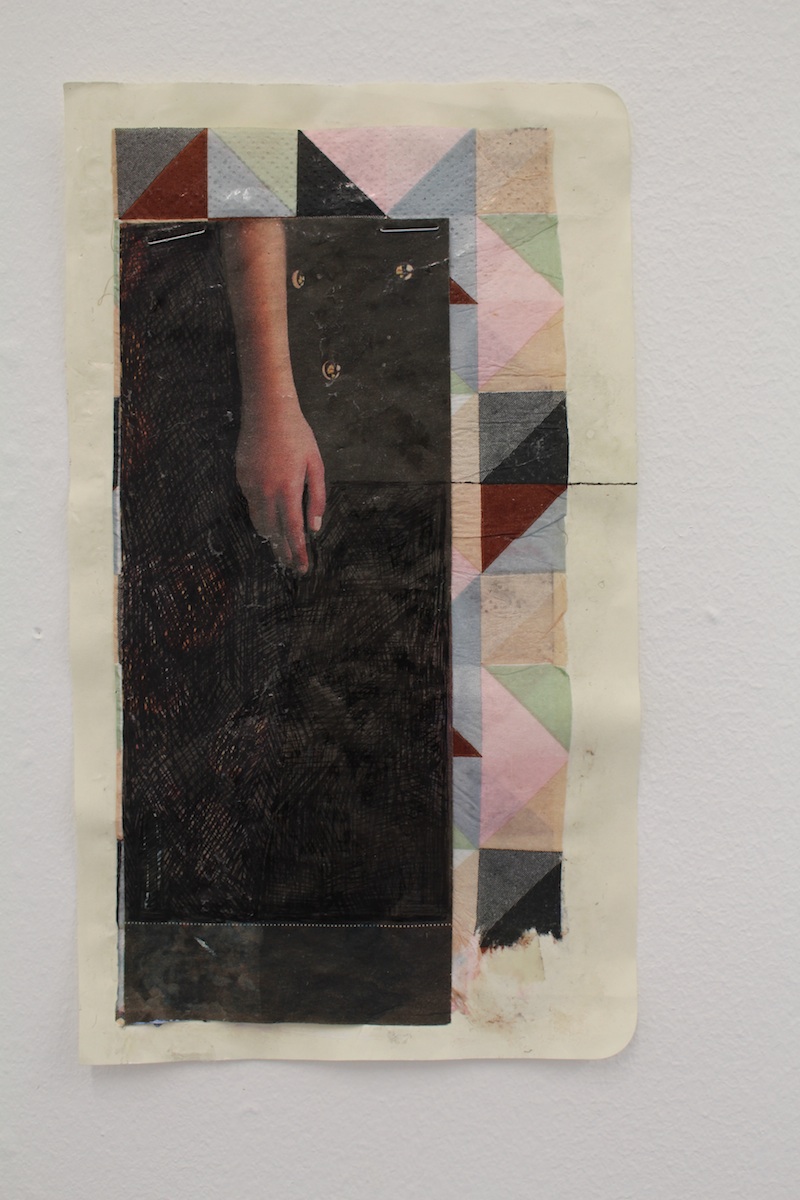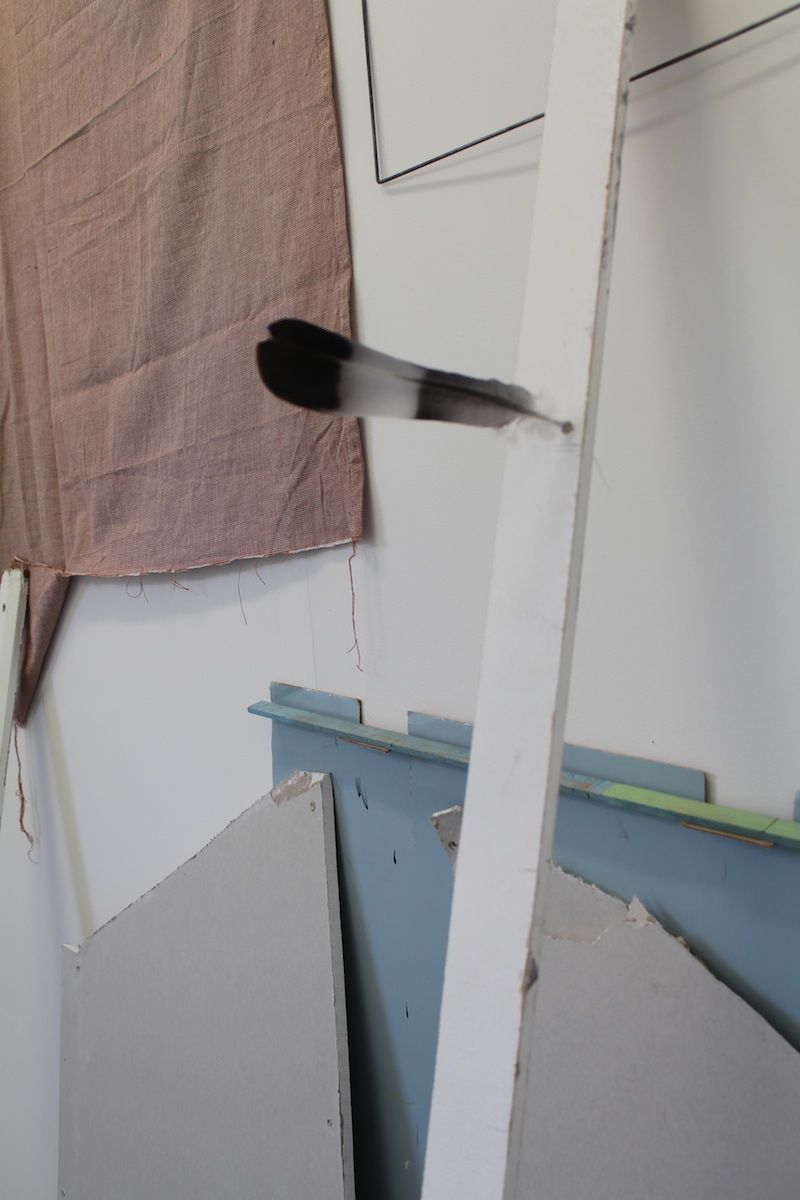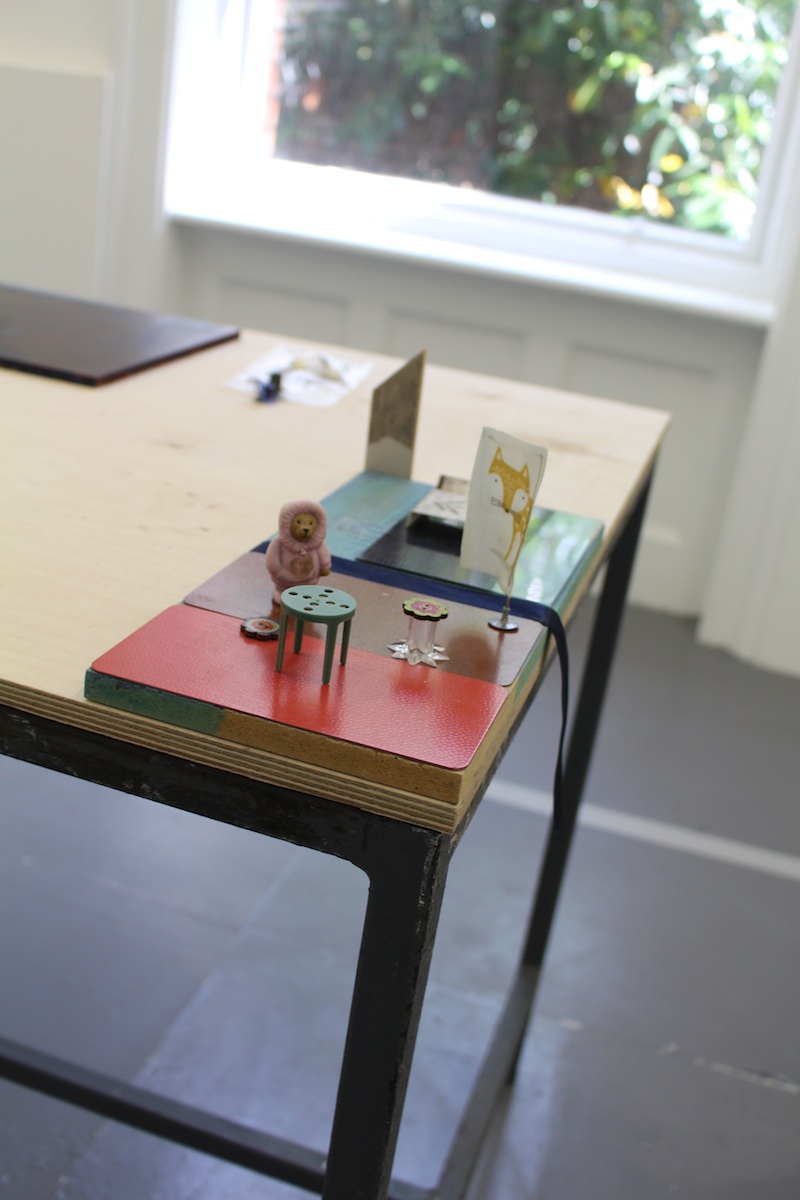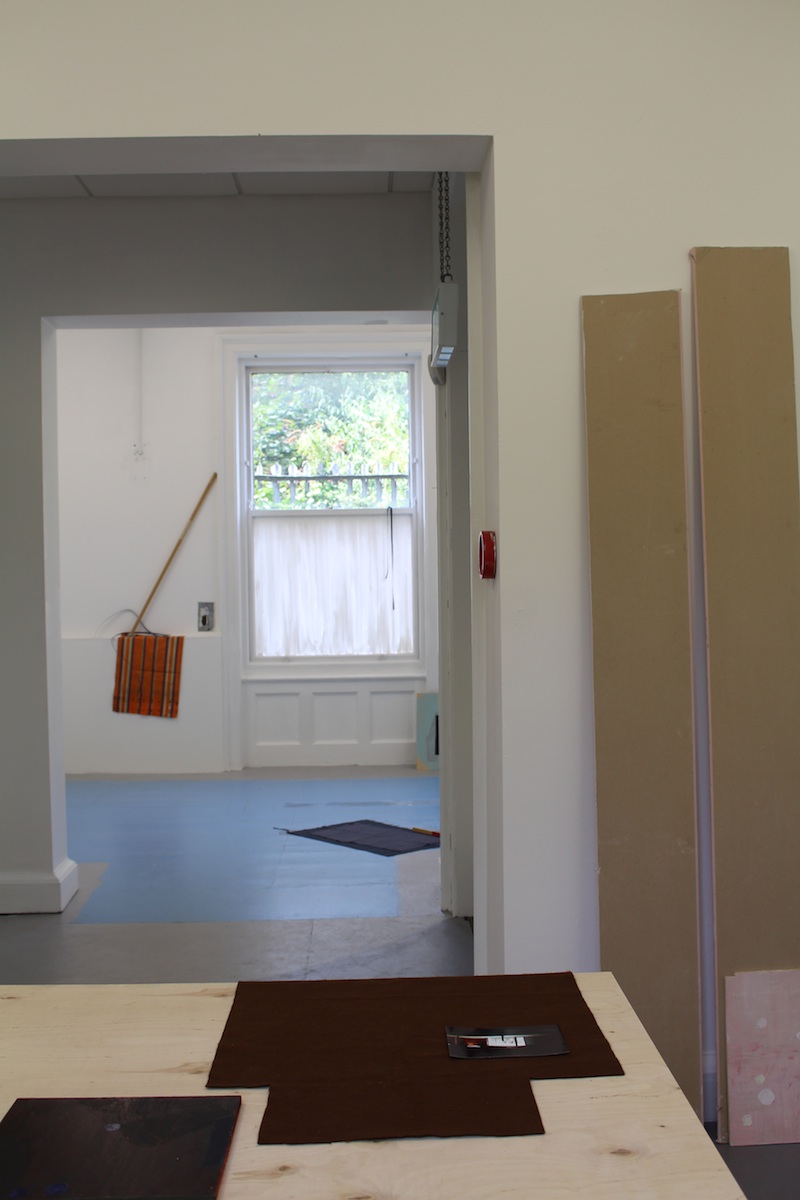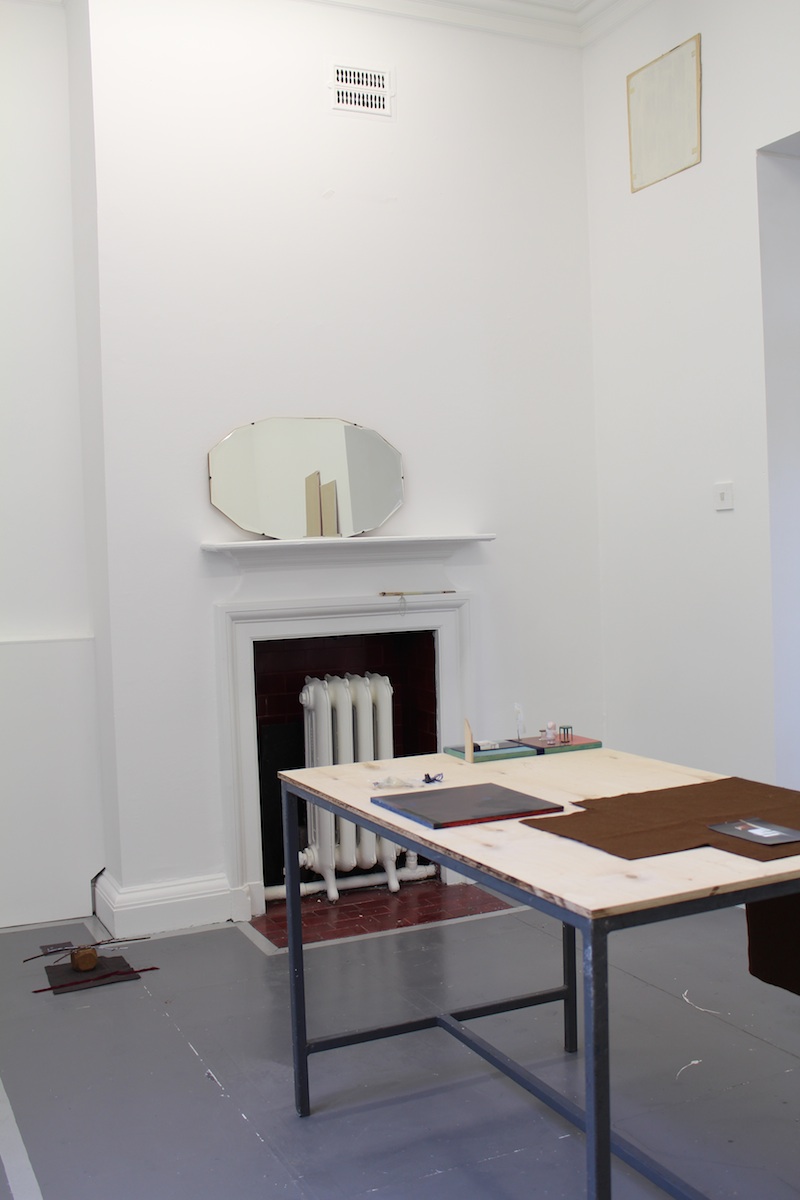Lily Cahill: Frances O’Dwyer
“What they meant by lazy was that I used too many contractions: for instance, I would not write out in full the words cannot and will not, but instead contracted them to can’t and won’t.”[1]
Can(no)t and w(ill) not. Rolling the ‘o’ sideways, cutting the ‘no’, the ‘ill’ (or depending on one’s interpretation of the bartender’s pour – emboldening these ‘nos, these ‘ills), reveals a more brutal and bare subjective ‘truth’ in Frances O’Dwyer’s spare, unsparing NCAD MFA presentation, ‘Somewhere between in here and out there’.
O’Dwyer’s frugal, hazy yet literally barbed assemblage of paintings, images, little objects and carefully placed materials induces a state in the viewer akin, perhaps, to having imbibed a number of gin and tonics, rendering one loose-lipped, fork-tongued and feeling Wilde in the mist. When, suddenly out of the ether, one is confronted by a fresh interpretation of a year’s passed, though long lasting in its potency, traumatic relationship; a trauma which engages you now, encircles you now, a new NOW eternal present enfolding you by dint of this beautiful, thorny work: “SHE: Oh! It’s horrible. I’m beginning to remember you less clearly. (He holds the glass and makes her drink. She’s horrified by herself.)”.[2] Glass half empty indeed.
But is this recollection, this confrontation, an accurate representation of reality. Did it really happen that way. Did it happen at all. As Madonna queries in 1994’s ‘Take A Bow’ – “Do you mean what you say when there’s no one around?”, followed almost immediately by: “I’ve always been in love with you, I guess you’ve always known it’s true”. Really?
Via which slurring, spat or sung articulations, in art or otherwise, can the individual truthfully, effectively, communicate one’s subjective experience whilst also attempting to engage with what’s really there. What cuts must be (self) inflicted. What ‘no’s’ and what ‘ills’ must be eviscerated or exposed. How loud must one shout from one’s cellar. How high must O’Dwyer jump to reach the outside world. Can’t and Won’t? Hardly. “When she jumped, she probably thought she’d fly.”[3]
